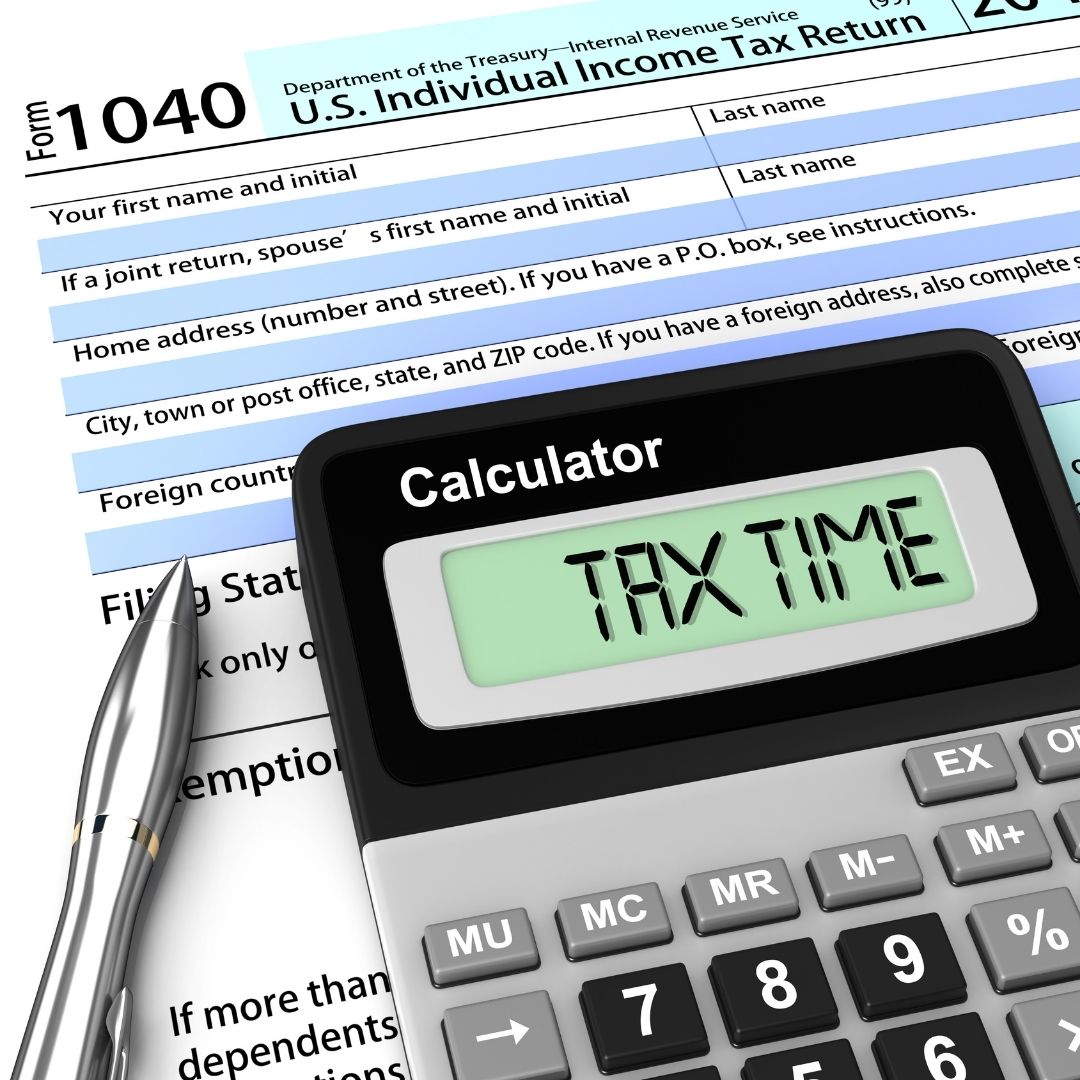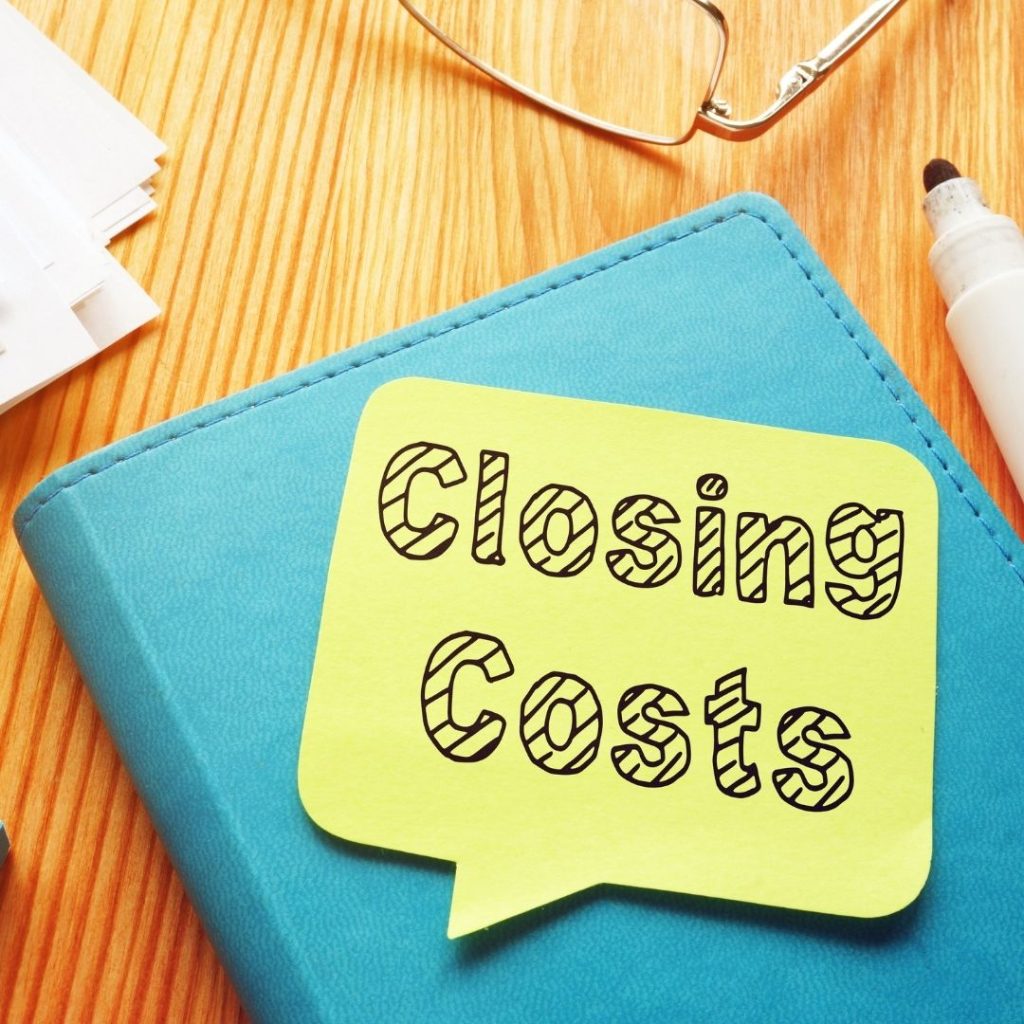
Can I Deduct Mortgage Costs?
If you’re reading this, it is probably tax season (again) and you’re looking for ways to keep the money you’ve worked so hard to earn. The good news is that many mortgage-related items can be tax-deductible. We’ll breakdown when property tax is deductible and what closing costs you can deduct as well. *This article was update January 31, 2023 to reflect updated deduction caps.
When Is Mortgage Interest Tax-Deductible?
Contrary to popular belief, mortgage interest is not always tax-deductible. There are a handful of factors that weigh into this.

- Do you itemize your tax deductions?
The 1st thing to consider is if you will be itemizing deductions or taking the standard deduction. If your answer is standard deduction, you can pause here as you would not be claiming your mortgage interest if you take the standard deduction. If you plan to itemize, let’s review a few additional factors.
You cannot take the mortgage interest deduction if you are taking the standard deduction. In 2023, the standard deduction is $13,850 for single taxpayers, $20,800 for heads of household, and $27,700 for married taxpayers filing a joint return. Please see a CPA for details.
2. Is your home a “qualified residence”?
Mortgage interest is only deductible if the mortgage is attached to a “qualified residence”. Taxpayers can generally deduct the mortgage interest on two qualified homes: one primary home and one vacation home.
3. Is your mortgage classified as “acquisition indebtedness”?
Your mortgage or home equity line of credit is considered “acquisition indebtedness” if it was used to buy, build, or improve a qualified residence. Generally, you can deduct the interest on mortgage balances up to $750,000 of Acquisition Indebtedness. Here are two examples:
- Jane buys her $500,000 primary residence using a $400,000 mortgage. Jane would be able to deduct the interest on the $400,000 mortgage as acquisition indebtedness because (1) the mortgage was to buy a qualified residence; and, (2) the mortgage falls within the $750,000 limit.
- Janice buys her $500,000 primary residence with cash. A year later, Janice does a cash-out refinance and puts a $400,000 mortgage on the home. The funds are not used for home improvements. Janice would NOT be able to deduct the interest on the new $400,000 mortgage because the funds were not used to buy, build, or improve the house.
4. $1MM acquisition debt limit on pre-2017 loans.
Your acquisition debt limit is $1 million if you closed on your home loan prior to December 16, 2017, and the loan qualified as acquisition indebtedness at that time. You can keep that $1 million limit if you refinance that home loan as long as you do not increase the current balance on the loan. For example, if your current balance is $950,000, the new loan you’re refinancing into can’t be more than $950,000. This is also true when consolidating or refinancing a home equity loan or line of credit taken out prior to December 16, 2017, as long as you used that home equity loan to buy, build or improve a qualified residence. In that case, your combined aggregate total limit would be $1 million, whether you keep both loans separate, or whether you consolidate them into a single loan.
5. Distinction between a qualified residence and an investment property.
Everything mentioned above pertains to a mortgage transaction involving a primary home or vacation home that is elected as a “qualified residence” for tax purposes. If your transaction involved an investment property, see IRS Publication 527.
Can I Deduct Closing Costs?
Yes! Some closing costs are deductible. Here is an overview of tax-deductible closing costs for loans closed in 2022.

- Points paid on a home purchase.
Closing Disclosure Page 2, Section A – If the origination charges on Page 2, Section A of the Closing Disclosure include points paid to your mortgage company in exchange for a lower interest rate, you can deduct those points in the year paid… even if they are paid by the seller. Other fees in this section (application, underwriting, processing, etc.) are NOT tax-deductible. Only bonafide points are deductible if they are expressed as a percentage of the loan amount and paid in exchange for a lower interest rate.
2. Points paid on a mortgage refinance.
Closing Disclosure Page 2, Section A – If the origination charges on Page 2, Section A of the Closing Disclosure include points paid to your mortgage company to reduce your interest rate, you can deduct those points in the following manner:
- You can deduct over the life of the mortgage all points paid on the portion of the mortgage proceeds that were not used for home improvements (for example, if you refinance your mortgage to reduce your interest rate, but do not take any cash out for home improvements).
- You can deduct this year all points paid on the portion of the mortgage proceeds that were used for home improvements (if you received cash-out and are using that cash-out for home improvements). Remember, any points paid on the portion of the mortgage NOT used for home improvements must be spread out over the life of the loan. For example, assume you refinance an old $200,000 mortgage into a new $300,000 mortgage and walk away with $100,000 to be used for home improvements. In this case, 1/3 of your points are fully deductible this year and 2/3rds of your points are deductible over the life of the loan.
- As outlined above, other fees itemized in this section are NOT tax-deductible.
3. Property taxes (actual and pro-rated).
Closing Disclosure Page 2, Section F – Property taxes itemized in this section are generally tax-deductible in the year they are paid. However, property tax escrows in section G are NOT tax-deductible until they are actually paid by your mortgage company to the municipality (city, state, county).
4. Pre-paid interest.
Closing Disclosure Page 2, Section F – Mortgage interest is calculated in arrears. This means that your monthly mortgage payment actually covers the month that just passed. For example, your February payment covers the interest for the month of January, your January payment covers the interest for the month of December, and so on. Oftentimes, when you refinance a mortgage or buy a new home, you “skip” a month’s worth of mortgage payments. That is why you sometimes pay “pre-paid interest” or “daily interest charges” in Section F of the Closing Disclosure. These daily interest charges cover the interest for the current month. If your mortgage interest is deductible, then the pre-paid interest that you pay in this section is also deductible (this will be included in the 1098 statement that you receive from your mortgage company).
5. Previous year points not yet deducted.
You may be able to deduct the remaining portion of the original points paid on an old mortgage if you refinanced that old mortgage in 2022. For example, assume you paid points on a refinance transaction 3 years ago. You probably were not able to deduct all the points you paid in the year they were paid. Instead, you had to spread that deduction out over the 30-year life of your mortgage. So, assume you’ve deducted 3/30ths of those points so far, and you refinanced your mortgage again in 2022. You can now deduct the remaining 27/30ths of those old points that you have not yet deducted.
6. Pre-payment penalties.
A pre-payment penalty paid on an old loan would be deductible on your 2022 tax returns as long as the new loan was taken out from a different lender than the old loan.
7. Other closing costs.
Closing costs not mentioned above are not tax-deductible. However, they are added to your “tax basis” for purpose of calculating your capital gain when you sell the property. In other words, you may be able to reduce your capital gains tax (if applicable) when you sell the property in the future because your home purchase closing costs get added to your cost basis.
DISTINCTION BETWEEN A QUALIFIED RESIDENCE AND AN INVESTMENT PROPERTY
Everything mentioned above pertains to a mortgage transaction involving a primary home or vacation home that is elected as a “qualified residence” for tax purposes. If your transaction involved an investment property, see IRS Publication 527.
PLEASE NOTE: THIS ARTICLE IS PROVIDED FOR INFORMATIONAL PURPOSES ONLY AND DOES NOT CONSTITUTE LEGAL, TAX, OR FINANCIAL ADVICE. PLEASE CONSULT WITH A QUALIFIED TAX ADVISOR FOR SPECIFIC ADVICE PERTAINING TO YOUR SITUATION. FOR MORE INFORMATION ON ANY OF THESE ITEMS, PLEASE REFERENCE IRS PUBLICATION 936.
